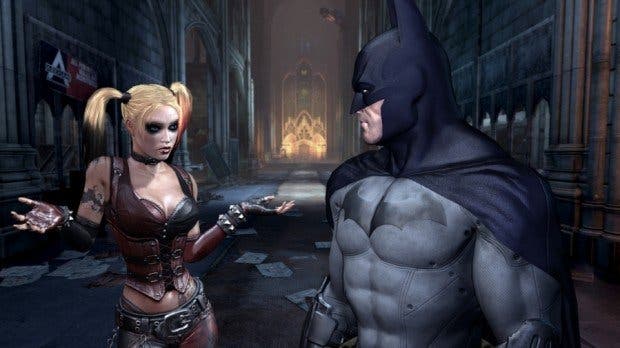Saturday Soapbox: The Trouble With Tie-ins
Why do licensed games have such a bad reputation?
Several years ago, some friends of mine bought their first console - a Wii. Then, they went down to the shops to get some games for it. They came back - sadly, I am not making this up - without Mario Galaxy or Twilight Princess. Instead, they'd picked up The Pirates of the Caribbean.
Okay, so their reasons for this were kind of weird. They thought it would be good because "Johnny Depp was involved". Not with the coding, guys! That said, why shouldn't it have been a safe bet anyway? Pirates of the Caribbean could make for a brilliant game. Buccaneers, sword fights, ghost ships turning up amidst moonlight and the flicker of burning torches. Get Johnny Depp working on the texture streaming, and you've got a hit, right? The only reason I knew that game was going to be terrible was because it was a licensed game - and yet, in a better world, shouldn't the licence have been the thing that made it great?
This weekend, a lot of people are venturing into Arkham City, and enjoying a licensed title that will probably be a serious challenger for most Game of the Year lists. The issue that often comes up when discussing Rocksteady is how the studio's managed to make a comic book tie-in that is actually worth playing. Maybe, though, we should be flipping that thought on its head. Licensed games get to tinker with some of the greatest heroes and villains and settings and gadgets and robots and pirates and zombies in all of pop culture: how come so many of them aren't worth playing? What's holding licensed games back?
The first answer, I suspect, involves budgets and schedules. Somehow, Rocksteady got Eidos - and then Warner - to give the team the time and the money to take Batman and make him really work in games. Most teams, by the looks of it, aren't so lucky. Spider-Man: Edge of Time, which was out a week ago and plummeted through the charts so quickly that it's probably reached the Earth's molten core by now, may be the follow-up to the pretty good Shattered Dimensions, but last September's decent reviews didn't let Beenox off the hook when it came to turning a sequel around in under a year.

The end result - trust me, I am that rare human being who has actually played it - is a game that looks like it was turned around in under a year, and perhaps while most of the studio worked on the new film tie-in. Edge of Time recycles bosses, recycles missions, and recycles environments. It even recycles Spider-Men - and Beenox is Canadian, so I bet the team recycles glass, cardboard, and some plastics too, the communists. Spidey's latest isn't awful, but it is threadbare and rushed and ever so slightly knackered. It's a typical licensed game.
Why do licensed games get so little development love, then? I'm guessing - and I'm prepared, as usual, to be utterly wrong - that this is because a licence is the video game equivalent of a rentier state. Just as discovering you're rich in oil or other natural resources means that your typical government quickly realises it doesn't have to do things like build meaningful institutions and keep its people happy when it can just bring in cash from overseas, having the X-Men knocking about the place gives publishers the understanding that they don't need to worry about quality. Those plucky mutants will lure the fans to the stores by themselves.
I suspect this doesn't work so well anymore, and it doesn't work so well because video games have had their own equivalent of the Arab Spring. Us proles have rumbled the fact that these games are terrible. We're not trashing the shops yet, but we have stopped buying the product.
This rentier mentality - not a phrase I expected to be typing when I started down the road to a career writing about Yoshi and Princess Peach - must have a terribly corrosive effect on the moral of the people who make games. Ira Glass once said, "People who do creative work get into it because they have good taste, but there's a gap, and for the first couple of years you're making stuff, what you're making isn't so good."




-3-31-23-screenshot.png?width=291&height=164&fit=crop&quality=80&format=jpg&auto=webp)




